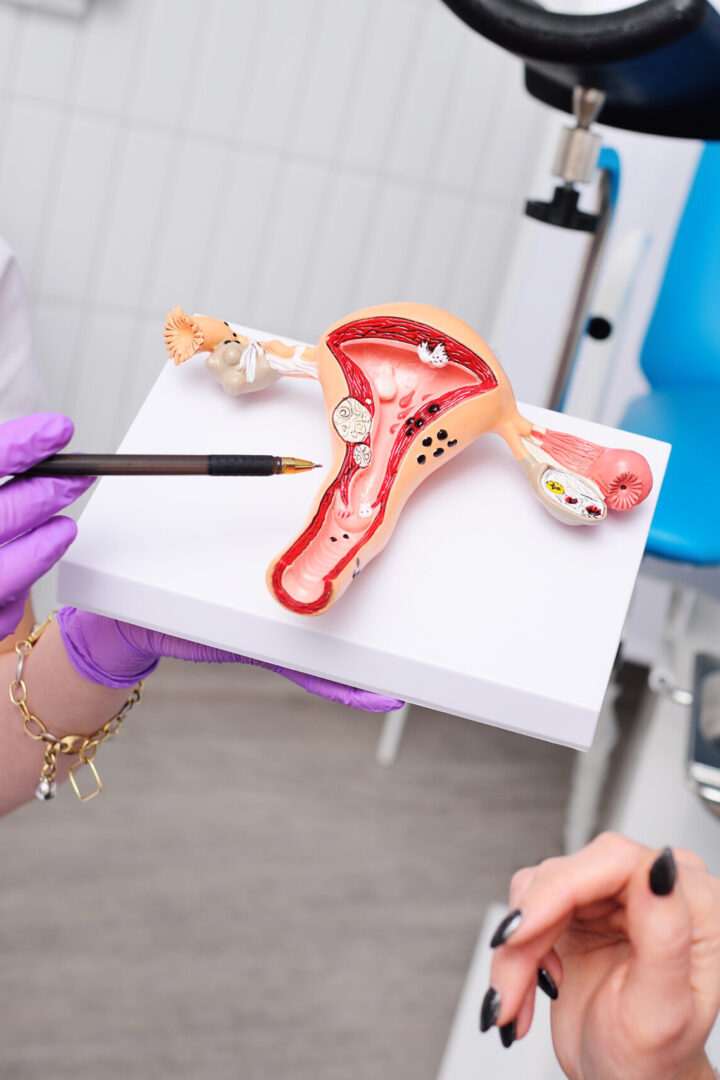Oophorectomy Removal of Ovaries Surgery in Indore
Make an Appointment
Online Schedule
Dr. Namrata Kachhara is a highly experienced gynecologist specializing in oophorectomy surgery in Indore, providing advanced care and personalized treatment for women who need to undergo the removal of one or both ovaries. With over 35 years of experience in gynecology and surgical procedures, Dr. Kachhara ensures that her patients receive the best possible care, using minimally invasive techniques for quicker recovery and minimal discomfort.
Oophorectomy, while a significant surgery, can be life-changing, offering relief from various medical conditions and improving health outcomes. Dr. Kachhara’s expert approach makes this procedure safe and effective, ensuring patients feel supported throughout the process.
What is Oophorectomy Surgery?
Oophorectomy is a surgical procedure that involves the removal of one or both ovaries. The ovaries are part of the female reproductive system and produce eggs as well as important hormones like estrogen and progesterone. In certain situations, removing the ovaries may be necessary to improve health, reduce the risk of certain conditions, or treat pre-existing health problems.
Dr. Kachhara performs oophorectomy surgery using laparoscopic techniques whenever possible, which reduces the risk of complications, promotes faster recovery, and minimizes scarring. In some cases, an open surgery may be required depending on the condition.
How is Oophorectomy Performed?
Dr. Kachhara typically performs oophorectomy surgery using laparoscopy, a minimally invasive technique that involves small incisions and the use of a camera to guide the procedure. The advantages of laparoscopic surgery include:
Smaller incisions leading to less scarring
Faster recovery times and less postoperative pain
Reduced risk of complications and infections
In some cases, an open surgery may be necessary, especially if the ovaries are significantly enlarged or if there are complications. Dr. Kachhara will determine the best surgical approach based on the patient’s condition.
Why Choose Dr. Namrata Kachhara for Oophorectomy Surgery in Indore?
- Over 35 Years of Expertise
Dr. Kachhara’s extensive experience in gynecology and surgical procedures ensures that she provides expert care in performing oophorectomy surgery.
- Minimally Invasive Approach
Dr. Kachhara specializes in laparoscopic surgery, ensuring faster recovery, minimal pain, and smaller scars for her patients.
- Personalized Care
Each patient’s condition is unique, and Dr. Kachhara provides a customized treatment plan, ensuring the best possible outcome for every individual.
- Compassionate Support
Dr. Kachhara’s caring approach helps patients feel supported throughout the procedure, from diagnosis through recovery.
- Trusted Expertise
Dr. Kachhara has earned the trust of hundreds of patients in Indore for her expertise, professionalism, and compassionate care.

Reasons for Oophorectomy Surgery
Ovarian Cancer
Oophorectomy is often recommended as part of the treatment for ovarian cancer, either as a preventive measure or to remove cancerous tissue.
Endometriosis and Chronic Pelvic Pain
For women suffering from severe endometriosis or chronic pelvic pain that is not relieved by other treatments, an oophorectomy may be suggested to remove the source of discomfort.
Risk Reduction in High-Risk Individuals
For women at high genetic risk for ovarian or breast cancer, particularly those with mutations in the BRCA1 or BRCA2 genes, oophorectomy is often performed as a preventive measure to reduce the risk of developing cancer.
Hormonal Imbalances
Severe hormonal imbalances caused by ovarian conditions may necessitate the removal of the ovaries, especially if they interfere with a woman’s overall health and well-being.
Benign Ovarian Conditions
Conditions like ovarian cysts, endometriosis, or fibroids can cause significant pain and complications. Oophorectomy can help manage these issues when other treatments are not effective.
Regain Your Health and Wellness with Expert Care
Oophorectomy surgery can be a life-changing procedure that enhances your overall health and well-being. Whether it’s to address medical issues or reduce the risk of future complications, Dr. Namrata Kachhara’s expertise ensures a safe and successful surgery.
Book your consultation today and take the first step towards better health and comfort.
FAQs About Oophorectomy Surgery
Yes, oophorectomy is generally safe when performed by an experienced surgeon like Dr. Kachhara. Risks are minimized with modern techniques like laparoscopy.
If one ovary is removed, you can still get pregnant if the remaining ovary is healthy. If both ovaries are removed, fertility treatments like egg donation may be considered.
As with any surgery, there are risks such as infection, bleeding, or injury to surrounding organs. However, these risks are minimal with Dr. Kachhara’s expertise.
If both ovaries are removed, you may experience menopause-like symptoms due to the loss of estrogen and progesterone. Hormone replacement therapy (HRT) may be recommended to manage these symptoms.
Recovery time depends on the type of surgery performed. Most patients who undergo laparoscopic surgery can return to normal activities within 1–2 weeks, while open surgery may require a longer recovery period.
